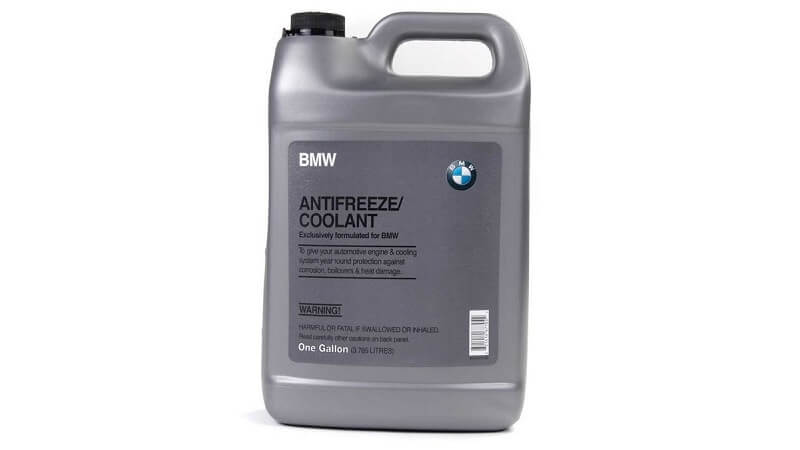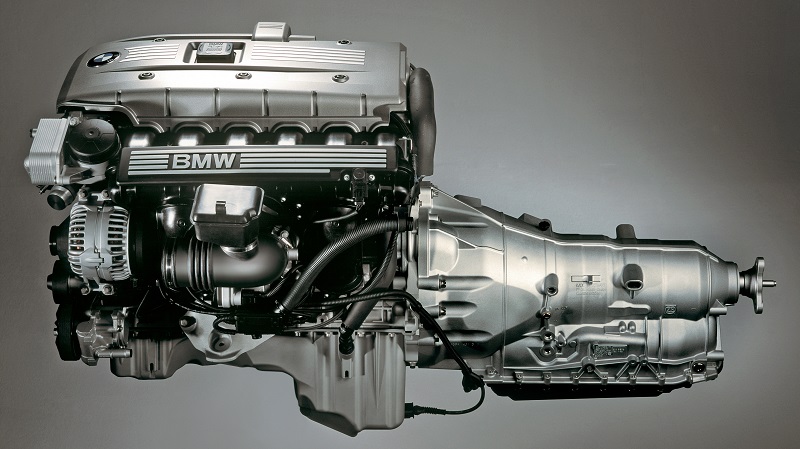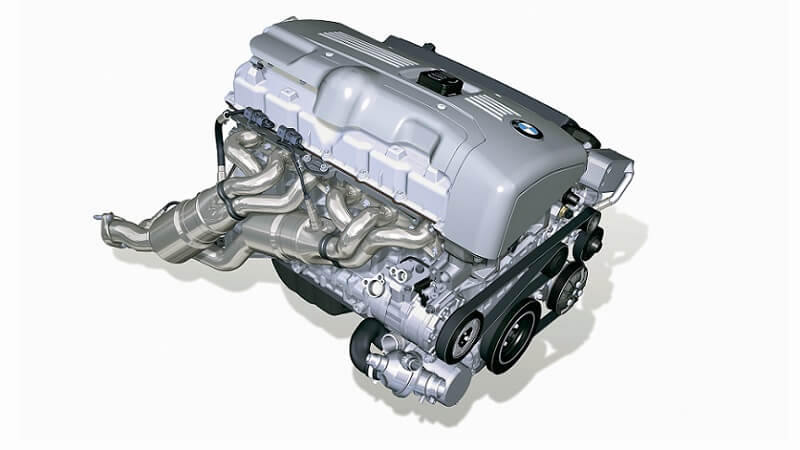BMW has established a reputation for producing exceptional engines over the years. These engines offer exceptional performance, fuel efficiency, and reliability. One of their top-performing engines is the BMW N26. It demonstrates BMW’s strong dedication to environmental impact and build quality.
A car’s engine is crucial in determining its reliability and performance. It serves as the soul of the vehicle, powering its movement. In this blog post, we will closely examine the reliability of the BMW N26 engine. We will explore the key features, strengths, and potential issues that BMW N26 owners may encounter.
We will also discuss the N26 engine and its sibling, the N20 engine, and provide some useful maintenance tips to ensure the longevity of your N26 engine. This information can assist you in making an informed decision about the BMW N26 engine. If you are interested in BMWs or are seeking a reliable and high-performance vehicle, this comprehensive guide will provide you with all the essential information about the reliability of the BMW N26 engine.

BMW N26 Engine: In-detail
The BMW N26 (N26B20) is a highly impressive and groundbreaking engine. This particular engine is derived from BMW’s renowned inline-4 turbocharged engine family, but it boasts numerous enhancements compared to its older brother, the BMW N20. The BMW N26 is constructed using lightweight aluminum, resulting in a robust and nimble vehicle. It utilizes TwinPower Turbo technology to accelerate and maintain excellent fuel efficiency.
The BMW N26 engine was introduced in 2012 and remained limited to select BMW models from 2012 to 2016. It is present in various BMW models, such as the 2 Series, 3 Series, and 4 Series, to name a few. The 2.0-liter four-cylinder engine delivers an impressive 241 horsepower and 258 lb-ft of torque, providing BMW vehicles with a thrilling driving experience.
It can be paired with either an 8-speed automatic transmission for seamless shifting or a 6-speed manual for a more engaging and raw driving experience. Regardless of the purpose, it offers exceptional performance for driving enthusiasts and everyday commuters.
The N26 exemplifies BMW’s dedication to producing exceptional engines, showcasing meticulous design and engineering. This particular class of vehicle engines is known for its exceptional power and innovative features, setting a high standard in the industry.

How reliable is the N26 engine?
The BMW N26 engine is regarded as dependable, particularly in models manufactured after February 2015. However, some earlier versions of the N26 engine have experienced timing chain issues. These issues can involve chain elongation, failing guide rails, or a faulty timing chain tensioner.
Although there are some concerns, BMW engines, including the N26, have gained a reputation for their impressive performance and long-lasting nature, especially when given proper maintenance. It is important to regularly maintain your engine by performing tasks such as frequent oil changes, replacing filters, and quickly addressing any necessary repairs. This will help maximize the engine’s reliability and extend its lifespan.
In general, the N26 engine showcases BMW’s dedication to excellence. However, like with any high-performance engine, thorough and regular care and maintenance are crucial to ensure optimal performance.
BMW N20 vs. BMW N26 Engine: Know the Difference
The BMW N26 engine is an evolution of the BMW N20 engine, often regarded as having similarities to the N20. Certainly, the BMW N26 shares some similarities with the N20 engine, but it also has enough distinct characteristics that BMW enthusiasts or owners should be aware of.
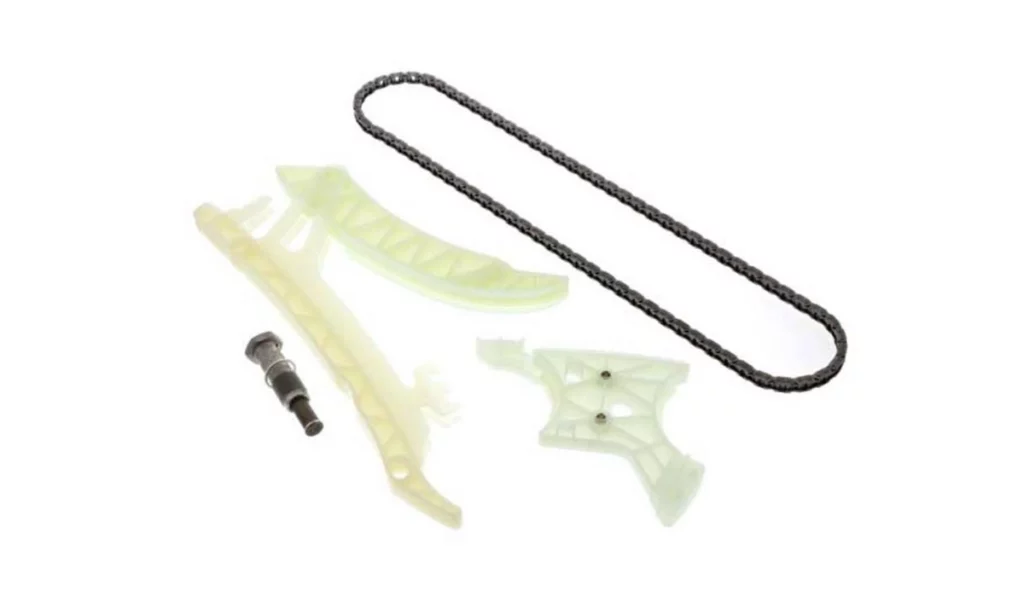
BMW N20 Engine
The BMW N20 engine was manufactured between 2011 and 2017. It replaced the N52/N53 series and provided comparable horsepower to the previous BMW straight-6 engines. However, it boasted improved low-rpm torque and efficiency.
The BMW N20 engine is classified as a ULEV (Ultra Low Emission Vehicle). It has advanced features like a twin-scroll turbocharger, double-VANOS for valve timing, Valvetronic for variable valve lift, and direct injection. Want to know more about BMW N20’s reliability and known issues? We already covered that in our blog post. Head there to know more!
ULEV is a term used to describe vehicles that emit fewer harmful emissions than regular gasoline-powered vehicles. Here are a few examples of BMW models that were equipped with the N20 engine:
- BMW 2 Series (F22) — 220i / 228i xDrive
- BMW 3 Series (F30 / F34) — 320i / 328i xDrive / 328i xDrive GT
- BMW 4 Series (F32) — 428i / 428i xDrive
- BMW 5 Series (F10) — 528i / 528i xDrive
- BMW X1 (E84) — xDrive28i / sDrive28i
- BMW X3 (F25) — xDrive28i / sDrive28i
- BMW X4 (F26) — xDrive28i
- BMW X5 (F15) — xDrive40e

BMW N26 Engine
The BMW N26 engine shares many similarities with the N20 engine and has some distinct features. It is an upgraded model of the BMW N20 engine designed to reduce harmful gas emissions.
The N26 engine has undergone several modifications. These include the replacement of rubber fuel lines with metal ones, the addition of a crankcase oil vent recirculation system, the implementation of an electronic wastegate, and the installation of larger catalytic converters. Nevertheless, it retains the twin-scroll turbocharger, double-VANOS valve timing, Valvetronic variable valve lift, and direct injection that were present in the N20.
The N26 engine falls under the SULEV (Super Ultra Low Emission Vehicle) category. SULEV engines have emissions that are even lower than ULEV (Ultra Low Emission Vehicle) engines. BMW’s SULEV designation demonstrates its dedication to minimizing emissions without compromising engine performance. Here are a few of the models that come with N26 engines:
- 2-Series (F22) — 228i / 228i xDrive
- 3-Series (F30) — 328i / 328i xDrive
- 4-Series (F32 / F36) — 428i / 428i xDrive
Get Top-quality BMW Parts at Discounted Rates
At Bimmers.com, let your Bavarian beast roar to its full glory. We offer a massive range of genuine BMW and OEM parts at unbeatable prices. Our careful selection meets the brand’s stringent standards. These parts ensure your ultimate driving machine runs smoothly, with perfect fit and top performance.
Rule the road without emptying your pockets. Whether you’re a seasoned pro or a new BMW lover, Bimmers.com gives you unbeatable value without skimping on quality. We guarantee your prized ride gets only the finest parts.
Experience the difference at Bimmers.com and take your BMW driving to new levels. Join a passionate crew that shares your obsession with keeping your beloved BMW in mint shape.
Most Common Problems on BMW N26 Engine
While the N26 engine is generally praised for its impressive performance and efficiency, it has its fair share of issues. Although it has a positive reputation, it has been known to experience a few typical issues. Here are some problems that owners have reported.
Timing Chain Problem
The most well-documented problem with the BMW N26 engine is with the timing chain. Let us understand it in detail.
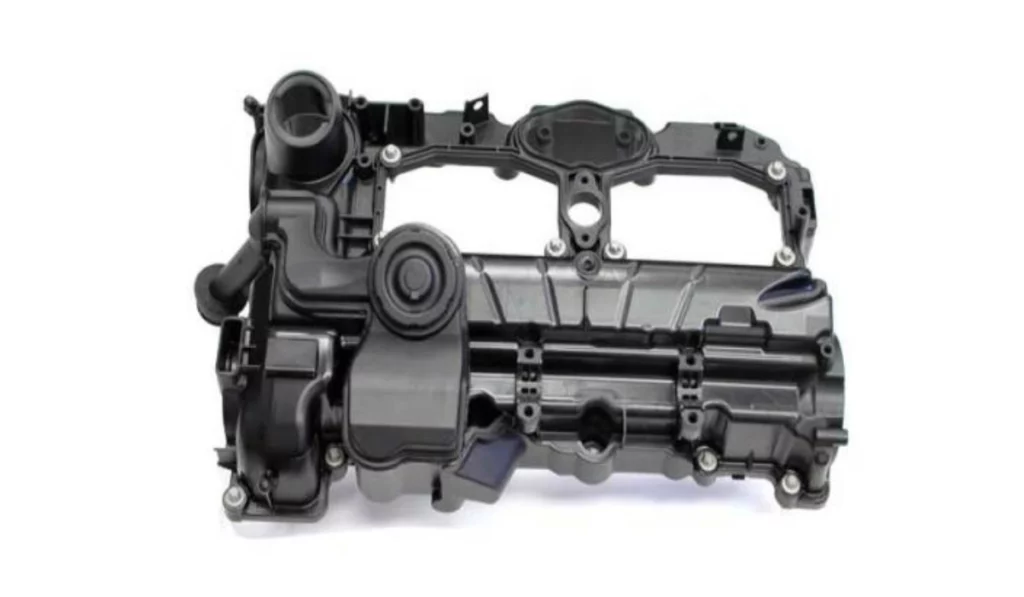
What is a Timing Chain?
The timing chain plays a crucial role in the operation of an internal combustion engine. It ensures that the crankshaft and camshaft, responsible for valve control, are synchronized. The timing of this process is crucial as it dictates the precise moments when air and fuel are introduced into the engine, as well as when exhaust is expelled.
The timing chain components ensure precise synchronization between the engine’s valves and the pistons in the cylinders. Properly synchronizing the valve timing ensures the engine operates smoothly and efficiently.
When the timing chain has stretched or jumped out, it can disrupt the valve’s opening and closing mechanism. These issues can result in decreased engine performance, reduced power, or even total engine failure. Understanding the importance of proper timing chain operation is crucial to avoid significant engine issues.
Causes of Timing Chain Mechanism Failure
Stretched Timing Chain — After extended engine usage or high mileage, usually around 80,000 to 100,000 miles, the timing chain can stretch beyond its limit. If the timing chain is too loose, the valves and pistons might accidentally touch each other. As an interference engine, this is bad news. A simple timing chain replacement will now become an overhaul with the replacement of key engine parts, such as pistons and valves.
Tensioner Failure — The timing chain tensioner keeps the timing chain properly tensioned. Over time, it can wear out or fail, leading to excessive slack in the chain. If the tensioner cannot compensate for the chain slack, it may cause engine noise and potentially damage the engine valves or pistons if left unaddressed.

Faulty Guides or Rails — The timing chain is guided by various rails and guides within the engine. If the guide rails become worn or damaged, they can cause the chain to misalign or bind, leading to unusual noise, timing issues, and engine damage.
Oil Pump Drive — When replacing timing chain components, it is highly recommended that the oil pump chain unit be replaced. In addition to powering the oil pump, it also drives the balance shaft. It is important to schedule regular maintenance to ensure the engine runs smoothly after repairs.
Symptoms of Timing Chain Issues
Check Engine Light — The vehicle’s onboard diagnostics system may detect timing-related issues and trigger the check engine light on the dashboard.
Strange Engine Noises — Rattling, clicking, or grinding noises from the engine bay, especially during acceleration or at idle, can indicate a loose or failing timing chain.

Decreased Engine Performance — As the timing chain stretches, the camshaft timing shifts away from its correct position. This timing difference affects how the valves work, reducing the amount of air and fuel that can enter the combustion chamber. This leads to loss of throttle response and power.
Impact on Car’s Performance
If the timing chain snaps or jumps out of timing, it can severely damage the engine’s valves and pistons or destroy the whole engine. A wrong timing can also make the engine run poorly, waste more gas, and create more emissions. Maintaining the timing chain in good condition is important because any issues can lead to major engine problems and expensive repairs. Catching timing chain issues early is crucial for preventing severe engine damage.
Valve Cover Gasket Leaks
The valve cover gasket seals the gap between the valve cover and the cylinder head, effectively preventing oil leaks. If the gasket or cover becomes degraded or damaged, a valve cover leak can occur. This issue can arise if the valve cover is not adequately torqued during repairs. Proper torquing of the valve cover is essential to prevent oil from seeping through.

Indicators of a potential valve cover leak encompass oil drips or pools beneath the engine, noticeable oil on the engine’s surface, and a distinct smell of burning oil. The valve cover gasket must be replaced to address a valve cover leak.
If your engine’s crankcase ventilation is faulty, it is important to replace the valve cover as well. The crankcase ventilation valve is integrated with the valve cover. Proper maintenance of the crankcase ventilation system is crucial for optimal engine performance and to minimize harmful emissions.
High-Pressure Fuel Pump (HPFP) Failures
The high-pressure fuel pump delivers fuel to the engine’s direct injection system at extremely high pressures. Certain BMW N26 engines may experience premature failure of the HPFP. Typically, the HPFP fails when there is a problem with the quantity control valve and the internal seals start to degrade. These problems may cause the engine to run poorly, hesitating, stalling, and gas leaks to the crankcase.
It is essential to replace the HPFP to resolve the issue and return the engine to normal functioning. Proper maintenance of the fuel system and the use of high-quality fuel also prevent premature failures of the HPFP. If you happen to encounter any engine performance issues, it is crucial to have the HPFP inspected.
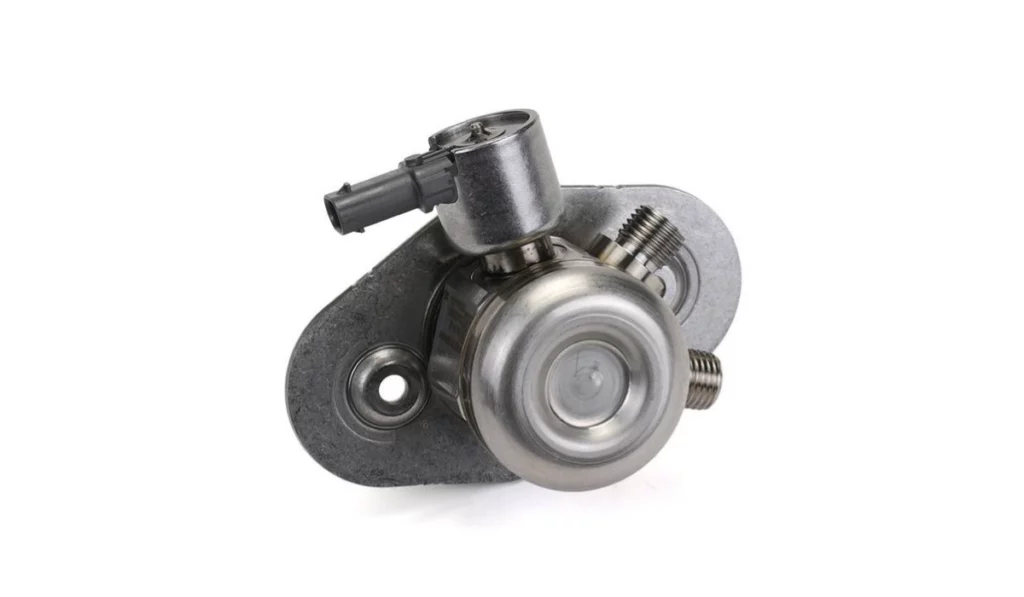
Turbocharger Problems
It’s worth noting that the BMW N26 engine may experience turbocharger problems. Common causes of turbocharger problems include lubrication failure, wastegate failure, and overspeeding, which can be attributed to factors like boosting or tuning.
Issues with the turbocharger can result in decreased engine performance and excessive exhaust emissions. To avoid or minimize potential issues in the engine, it is important to change the oil and monitor the turbocharger’s performance regularly.
Coolant Leaks
The BMW N26 engine can sometimes have problems, such as coolant leaks. Coolant can leak from the radiator, hoses, or water pump. If the coolant leaks out, it can cause the engine to overheat and get damaged. It can also lead to the coolant mixing with the engine oil, which is not good. It’s really important to fix any coolant leaks as soon as possible. You need to find where the leak is coming from and repair or replace the faulty part.
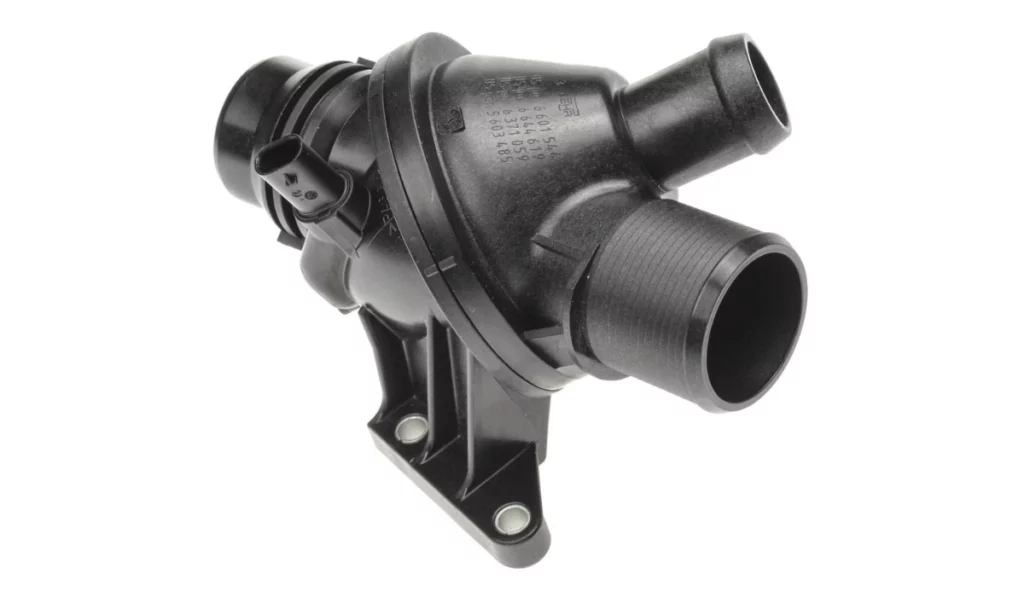
However, it is worth noting that coolant leaks from coolant hoses are common in decade-old cars, often due to age and usage deterioration. Regularly checking the coolant level and inspecting the cooling system can help prevent serious engine damage from overheating.
Water Pump and Thermostat Issue
Although not frequently encountered on the BMW N26, it is important to address the water pump and thermostat simultaneously to ensure optimal performance and avoid potential breakdowns. Proper water pump and thermostat maintenance is crucial to maintaining the engine’s health.
If you encounter Diagnostic Trouble Codes (DTCs) such as 2e81, 2e82, 2e83, or 2e84, it may indicate that it is time for a replacement. Performing regular inspections and replacing parts as necessary can help you avoid expensive repairs in the future, ensuring that your vehicle continues to run smoothly.
Fuel Injector Problems
While uncommon, the BMW N26 engine may experience fuel injector issues that can result in rough idling, poor acceleration, and decreased fuel efficiency. Over time, injectors can develop clogs or stop working properly because of dirt accumulation or normal wear and tear.
Typical signs involve the engine experiencing misfires and a slight delay in acceleration. Regularly maintaining your vehicle to prevent potential issues, such as fuel system problems, is important. It is crucial to quickly address any indications of injector issues to prevent additional harm to the engine.
Oil Filter Housing Gasket Failure
The oil filter housing gasket ensures a tight seal between the housing and the engine block, while the oil cooler gasket does the same for the connection between the cooler and the oil filter housing. Failures of the oil filter housing and oil cooler gasket can result in oil leaks and mixing of oil and coolant, which can cause potential issues.
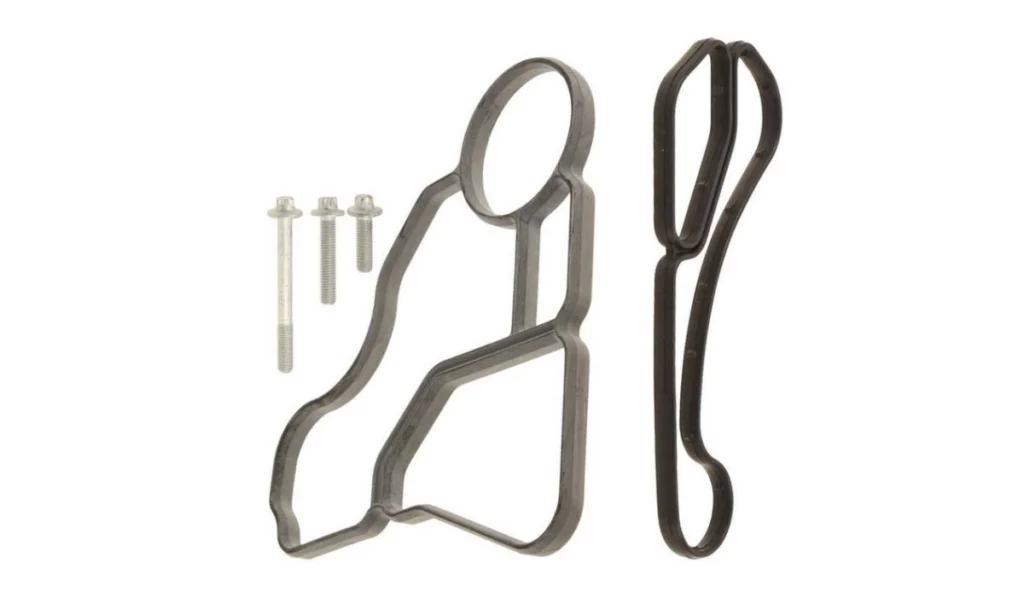
This can lead to possible harm to the engine and negatively impact its overall performance. It is important to replace these gaskets early to prevent oil loss, ensure proper engine lubrication, and avoid expensive repairs. Want to learn more about the oil filter housing leaks? Our article about it is a must-read!
Camshaft Position Sensor Failure
The camshaft position sensor monitors the camshaft’s angle, which is crucial for proper engine timing. Failure of the camshaft sensor on the BMW N26 engine can cause issues like rough idling, stalling, and loss of power. Symptoms may include engine warning lights and difficulty starting.
Ignition Coil and Sparkplug Problems
Ignition coils increase the voltage to produce sparks, igniting the air-fuel mixture, while spark plugs conduct these sparks into the combustion chamber. Ignition coil and spark plug issues can cause rough idling, difficulty starting, engine misfires, and DME failure.
Faulty coils or sparkplugs may trigger warning lights on the dashboard. Regular inspection and timely replacement of these components are essential for smooth engine operation. The plugs should be replaced every 60,000 miles.
DME Failure
We believe the core cause of DME failure on the BMW N26 engine is the prolonged ignition coil issues. If the ignition coil issues are left unaddressed, it will lead to irregular signals to the DME (Digital Motor Electronics), causing it to malfunction. This can lead to engine misfires, rough idling, and potential stalling, necessitating costly repairs.
Is the BMW N26 engine prone to carbon buildup issues?
Like other direct-injection engines, the BMW N26 engine can experience carbon buildup on its intake valves over time. Regularly using fuel additives specifically designed to clean the intake system and ensuring regular cleaning of the intake valves can help tackle this issue.
Maintenance Tips for BMW N26 Owners
Interested in maximizing the efficiency of your BMW N26 engine? Here are some useful maintenance tips. Regular maintenance is essential to keep your engine running smoothly and avoid costly issues that could affect your BMW’s performance.

Enhanced Service Schedule
According to our findings, updating the maintenance approach for the BMW N26 engine is important. Although BMW suggests a 10,000-mile service interval for an oil change, we recommend a more frequent maintenance schedule. For your engine’s best performance and reliability, it is recommended to service it every 5,000 miles.
This proactive approach helps to prevent common issues from escalating, such as leaks, loose connections, or unusual wear and tear. Regular inspections and proper maintenance are crucial for ensuring optimal engine performance and preventing any decline in its efficiency.
Check Engine Oil Regularly
The N26 engine, like any other, needs proper lubrication to function smoothly. Monitor your engine oil levels regularly and top up as needed using the recommended BMW-approved engine oil.
Use High-Quality Fuel
Go for premium-grade fuel to maintain engine efficiency and longevity. Lower-grade fuels can lead to carbon buildup and potentially affect engine performance over time.

Keep the Cooling System in Check
Make sure that the cooling system is functioning correctly. This helps avoid overheating, which can cause severe damage to the engine. Regularly check coolant levels and look for any leaks or signs of corrosion in the cooling system components.
Inspect Belts and Hoses
Periodically check the condition of belts and hoses linked to the BMW N26 engine. Replace worn-out or damaged hoses, drive belts, and tensioners to prevent sudden failures that could damage the engine.
Monitor Engine Performance
Pay attention to any changes in engine performance. It can be unwanted noises, vibrations, or decreased power output. They can provide early signs of issues that require immediate attention.
Avoid Vaccum Reservoir Damage
The vacuum reservoir, integrated into the engine cover, is quite fragile and can easily be damaged when removed. Handle this component carefully to prevent any damage resulting in leaks in the vacuum system. Handling the disassembly process carefully is crucial to preserving the system’s integrity.
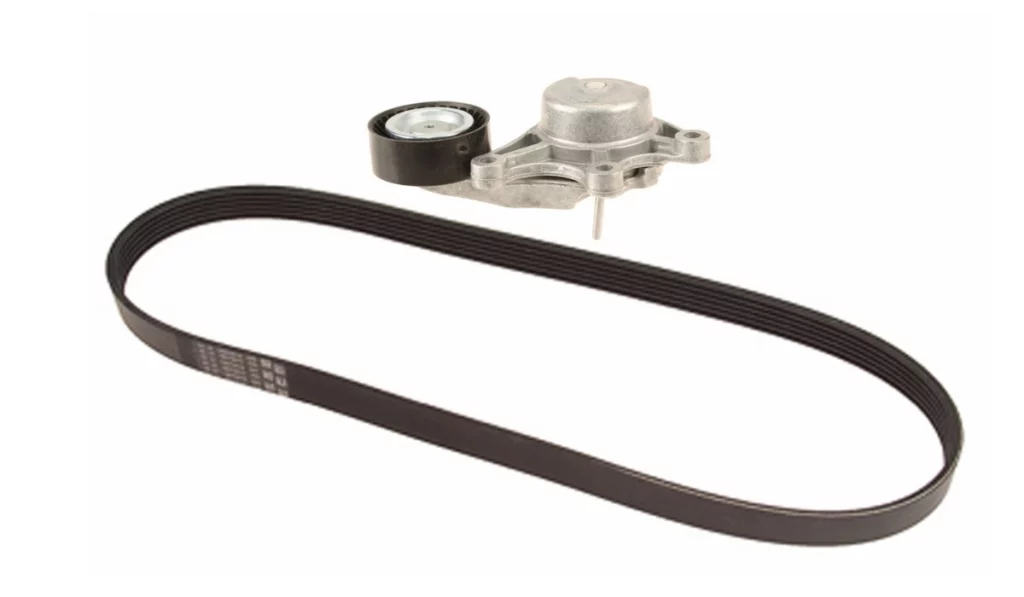
Drive Belt Replacement
Consider replacing the drive belts every 80,000 miles. In the meantime, replace the tensioner too, which is often overlooked.
Address Warning Lights
Do not ignore any warning lights appearing on your dashboard. These can be check engine, oil pressure, or coolant temperature warning lights. Carefully diagnose them to identify and address the hidden cause.
Drive Responsibly
Going too fast, accelerating quickly, and slamming on the brakes can put a lot of extra strain on your BMW’s components and system, including the engine. This kind of aggressive driving is hard on the vehicle. Taking it easy by driving smoothly and consistently ensures the engine lasts long and stays reliable.
Can the BMW N26 engine be tuned for more power?
Yes, the BMW N26 engine can be tuned for increased performance by aftermarket tuners. However, it’s important to note that tuning may affect reliability and warranty coverage.
Get the Quality BMW N26 Timing Chain from Bimmers.com
Are you looking for high-quality accessories for your BMW N26 engine? Look no further than Bimmers.com. Whether you need to replace the timing chain, a common failing component, or any other maintenance items, we offer a wide range of genuine BMW and OEM parts.
Our commitment to providing top-notch parts extends beyond just the timing chain. We have a vast selection of valve cover gaskets, coolants, air filters, hoses, belts, and other accessories you might need to maintain your BMW in perfect condition.
At Bimmers.com, we combine quality and affordability to ensure your BMW receives only the best. Our top-notch services will enhance your driving experience. Your BMW deserves nothing less.





















